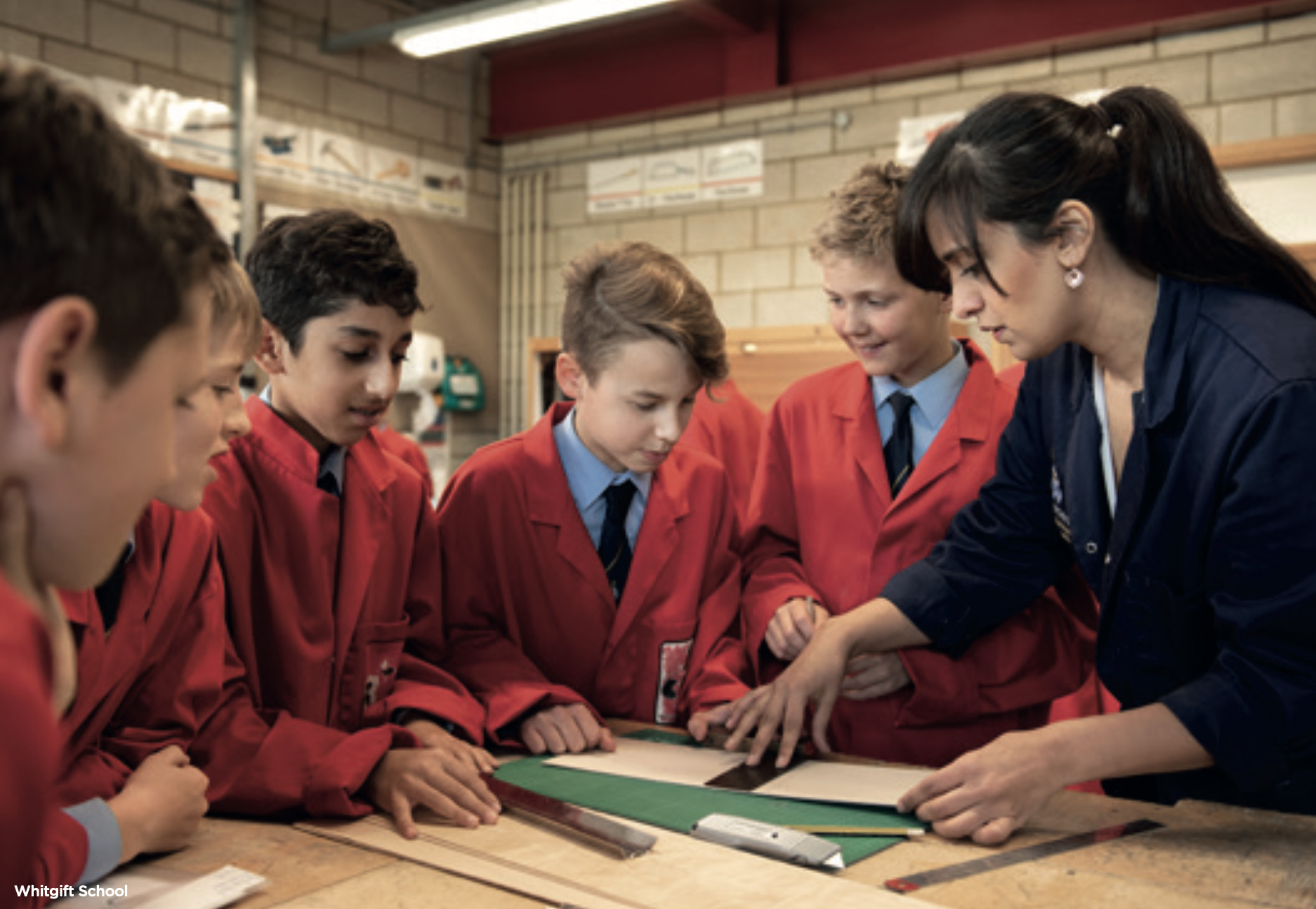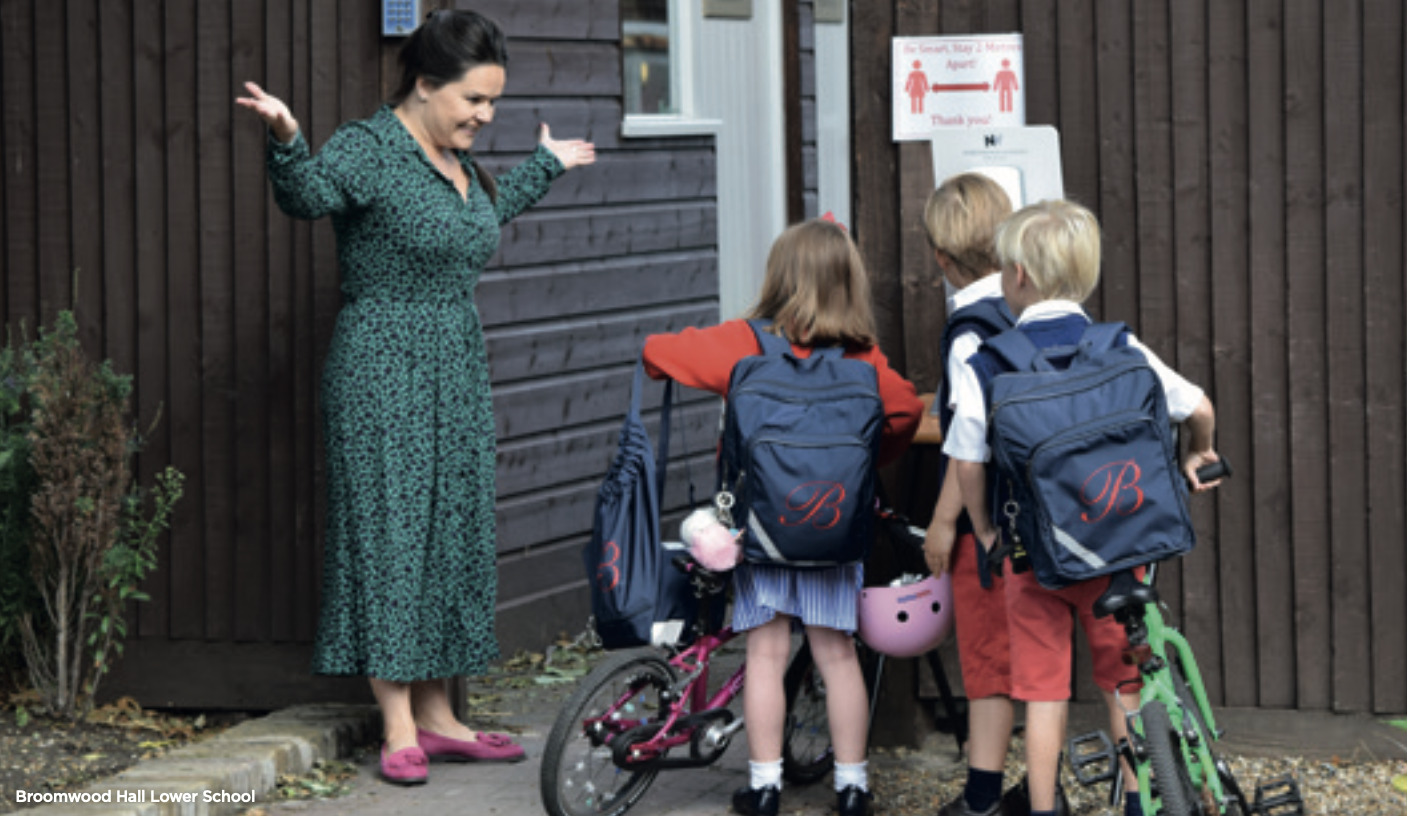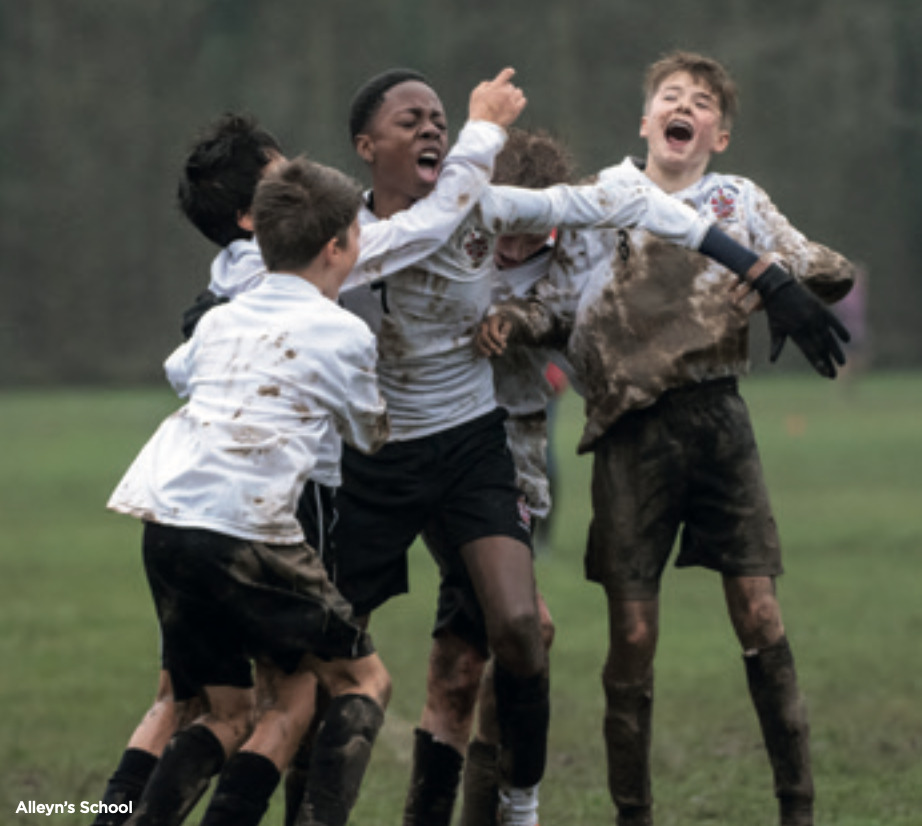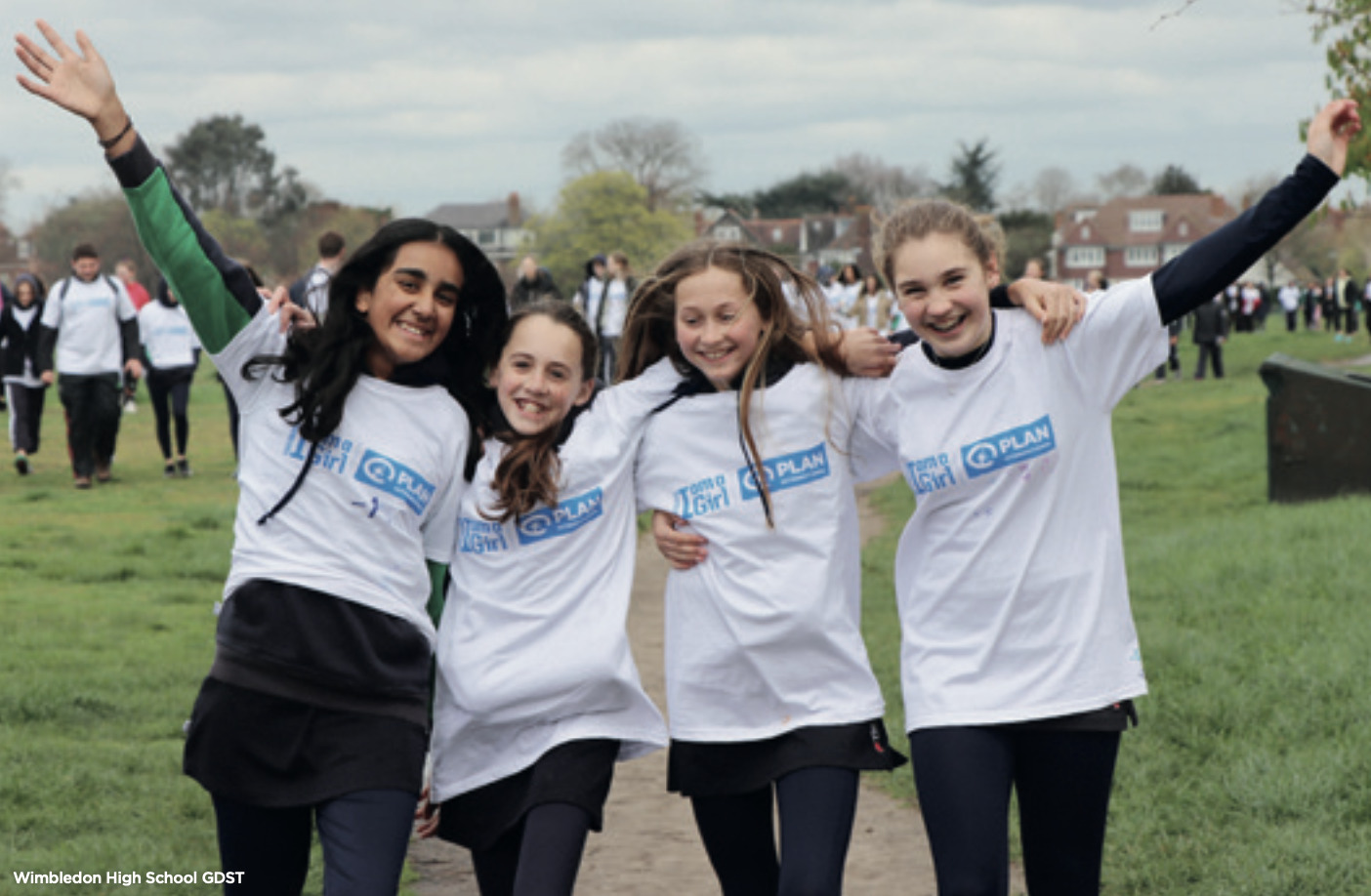Menu
Children have lost approximately half a year of in-school learning due to the pandemic. While schools have become experts in risk assessment, maintaining class bubbles, one-way systems, deep cleaning, and PPE, they have been given little government guidance on a ‘catch-up’ curriculum.
In fact, the Department for Education’s non-statutory guidance for schools on ‘teaching a broad and balanced curriculum for education recovery’ was only published on 2 July 2021, a few weeks before the end of the academic year. The guidance is optional and based on best practice, but it will be up to each school to adopt its own recovery plan and put in adequate measures to best meet the needs of their students.
The government allocated a £650 million catch-up premium for the 2020 to 2021 academic year to schools to ensure they had the support they needed to help all pupils make up for missed learning, which equates to just over £91 per pupil. A further £350 million was provided for the National Tutoring Programme (NTP) to provide additional, targeted support for those children and young people who needed the most help. Another £130 million for the NTP programme has been announced for the next academic year 2021 to 2022 with plans to extend it a year or two thereafter.
While early data from schools’ own assessments of their students is showing a steady progress in the children’s learning, to expect a full recovery within a term or two
is far too premature, schools say, as they continue to put in place measures to help children well into the next academic year.
Moreover, it is far too early to assess the total ‘loss’ as children are still experiencing the impact of the pandemic. Research last spring pointed towards a significant drop in pupils’ performance in reading and maths with younger children impacted the most, but the unprecedented nature of the crisis makes it almost impossible to fully predict the effects on children with the negative impacts extending well beyond educational attainment.
“It’s not all doom and gloom,” believes Aaron Markwell, Web & Content Manager at Exceptional Academics. “Many teachers and tutors alike are running catch-up sessions, aimed to fill the educational void, for those who require it. Many of our tutors and support team are pouring their spare time into running 11+ booster revision courses, devising school specific mock exams, planning summer schools, and preparing for the autumn term 11+ and 13+ entrance exams and interviews.”
Independent schools, on the whole, were able to maintain their regular timetable online with minimal disruption to their students, but the upheaval and trauma of the pandemic should not be underestimated in our rush to ‘catch-up’ says Claire Boyd, Head of Juniors at Wimbledon High School.

THE POWER OF DRAMA
Emmys and Oscars are far from the only rewards studying drama reaps though we
are proud of the dramatic success of alumnae, including Carey Mulligan and Emma Corrin. As well as showing students how to project their voices to an audience (useful in combatting a widely-held fear many adults have of public speaking), drama provides confidence to project their voices more figuratively too, building self-confidence and self-esteem. Encountering a variety of situations through playing different characters prepares students for novel experiences of their own and builds empathy through putting themselves in others’ shoes.Group work fosters valuable abilities required to work as part of a team, including communication, collaboration, respect and responsibility. The communal crafting of school productions, whether students choose backstage or onstage roles, gives them a shared sense of pride and accomplishment as well as valuable teamwork experience – not to mention being heaps of fun.
Source: Woldingham School
Boyd actively rejects the terms ‘lost learning’, ‘catch-up’ and ‘recovery curriculum’, contending instead that we need to look at a more optimistic framework going forward. She explains, “The narrative we’re in danger of building is creating a real sense of negativity and anxiety for our children. If they keep hearing this term ‘lost generation,’ it becomes a self-fulfilling prophecy.” Instead, Boyd believes that we should “make the most of this opportunity to let go of the shackles of some of the idealised expectations we have on academic performance and acknowledge, praise, and celebrate the attributes and skills children and young people demonstrated throughout the pandemic, such as resilience and the ability to adapt and flex to the situation they found themselves in.”
Hannah Farhan, Head at The Minster Junior School, agrees. “When we talk about the big ‘catch-up’, it’s so much more than academics. It’s about the effects of the pandemic on our children’s behaviour, social awareness, mental health and fitness.” When students returned to school in March, the first aid room was full of bumped heads as they had forgotten about spatial awareness. And many of them, especially lower down in the school, had simply forgotten how to sit down and learn. “We realised pretty quickly that the first thing we had to do was to take the time to reintegrate them into school life again and only then could they really be ready for learning.”
Indeed, all educators have had to take on a much larger pastoral role when it comes to the big ‘catch-up.’ The team at Mathnasium, the maths learning centre in Battersea, has invested extra time and resources in not only bringing children back up to where they should be in maths but also in helping them settle back into learning as a whole.
“The gaps in knowledge that the children are coming in with now are larger than what we would have seen 18 to 24 months ago,” says Centre Director, Fiona MacKenzie. What’s more, is that students across the ages are less confident and less independent than before the pandemic. “We just could not expect them to take off where they left off.”
The Mathnasium team are spending more time working closely with each student and collaborating with their parents in order to help them feel confident in their learning again. “With dedicated support, our students are thriving, not only hitting attainment levels for their age group, but more importantly, unlocking critical thinking skills, so they can work to the best of their abilities,” says MacKenzie.
But in their rush to ‘catch-up’, some schools have cut down on play time, which could prove counterproductive in helping children recalibrate themselves for learning again says, Clive Smith-Langridge, Headmaster of Northcote Lodge. He argues that playing “is one of the most important aspects of schooling, as not only do the children develop the building blocks of learnings, but also social interactions.”
In fact, schools like Northcote Lodge and its sibling pre and prep schools, Broomwood Hall Lower School and Broomwood Hall Upper School, are making play an integral part of their ‘recovery’ programmes. Incoming Heads, Jo Townsend and Louisa McCafferty, remark, “We’re putting much more emphasis on play-centred turn-taking and team-building activities to help children build up their social skills and confidence.” Susan Brooks, Head of Northwood Senior concurs. “We’ve worked really hard on the pastoral side.”
And we can’t look at the pandemic in a vacuum says, Colette Morris, Head Teacher at Christ Church CofE Primary School, Battersea. “We shouldn’t underestimate bigger societal issues such as the Black Lives Matters movement. Children came back to school with questions that needed to be asked and answered, so we trained our teachers in racial literacy to be able to support them. We need to hear our students’ voices and we have made space within the curriculum to do that going forward.”
Gender equality also came into sharp focus during the second lockdown with the amplification of young people’s voices on the ‘Everyone’s Invited’ forum and concerns about women’s safety in response to the abduction and murder of Sarah Everard. Recognising the risks of social media, schools have had to step up and create safe places for their students to talk and be listened to. Kevin Doble, CEO of Northwood Schools says, “What matters most is the ability of every student to feel that they are in an environment that is supportive, and that their learning occurs within the context of being socially aware, respected, happy and balanced. Those are the things that fundamentally matter, because frankly, without those, academics mean nothing at all. The difficulty, of course, is that we’re in such an outcome-driven society.”

ONLINE TUTORING
Online tutoring has become a successful and positive way of teaching. It offers convenience and flexibility, and you already have everything you need; wi-fi, a computer or tablet.
Not having to travel to your tutoring session means that you’re no longer constrained by your postcode and you can allow more flexibility as to when your session is and who your session is with. You have the opportunity to find the perfect tutor for your child and ensure that they will always be available.
If you’re concerned that there will be limitations, many channels allow tutors to view their tutees’ work, write on interactive whiteboards and share screens. Perhaps the most beneficial factor of online tutoring is that it offers the same possibilities
as learning in person. Using a webcam means that tutors can see when a child is struggling and needs help.Source: Teatime Tutors
It is precisely because of our outcome-driven society that parents are understandably concerned about their children’s academic progress. Tash Rosin, founder of Teatime Tutors explains, “For many schools, the most they could hope for with remote learning was to ensure that the children were keeping up with the curriculum and not falling behind. Since returning to school, teachers are focusing on revising the children’s skills and consolidating their knowledge, but not necessarily extending them.” Indeed, Rosin’s work revolves around extending her students’ knowledge and ensuring they can apply it confidently, so they are ready for the year ahead. She adds, “Schools really are trying their best, and my advice to any parent who is concerned that their child is bored or is not being challenged enough during this time, is to speak to their teachers as a first port of call.”
Mary Lonsdale, founder of the tutoring company Mentor Education adds, “For children going for 11-plus exams, many schools post past papers on their websites, and we recommend you go through them and practice them with your children. There are also great resources like the Bond or CGP books which are very helpful.”
Lonsdale’s outlook is positive. She explains, “whether your child is in the state or private sector, primary or secondary school, there will be parts of the curriculum they inevitably couldn’t keep up with online or didn’t understand as well, so go over those topics again at home and ask their teachers for extra resources in those specific areas.”
She adds that although schools are assessing children and putting in place intervention programmes for those who have fallen behind, for many parents it is still unclear how the pandemic has affected their child’s learning and they are concerned. “Most parents come to us because they don’t know exactly where their child is in their learning, compared to where they should or could be. We provide assessments with lots of data points on a child’s learning now, and their future academic potential. We can also pinpoint exactly where their weaknesses lie and help them overcome them.”
From a wider societal point of view, the pandemic highlighted and further exacerbated a deep chasm in the education system between the haves and the have nots. According to Teach First, an education charity, disadvantaged pupils are twice as likely to have fallen behind during the pandemic as their wealthier counterparts.
Northwood Schools’ Doble says, “It is in all of our interests to make certain that the majority of children are not left behind whether they are in the independent or maintained sector, because it’s a hollow victory. If the country goes backwards, it’s not going to benefit any of us; we need a community that is strong and positive and educated.”

FUTURE PROOF
So often we hear how much the world is changing, yet sadly in many ways education is lagging behind.
It is time for change, for a reform of examinations and the curriculum. Schools need to be places that enable pupils to study hard, be reflective, become self-aware and empathetic, develop mental resilience and the ability to solve problems creatively.Children of the future need to develop a free and curious mindset that is at ease in an uncertain world, where critical thinking and problem-solving skills are increasingly important. Students who acquire high-level thinking skills, perseverance, to reflect on one’s own bias and the bias of others, will be the generation that is able to decide on the best outcome and deliver the solution.
STEAM (Science, Technology, Engineering, Arts and Mathematics) should be fully embedded in the curriculum; only when this happens will we be really preparing children for the future.
Source: Parsons Green Prep
As such, independent schools, such as the Northwood Schools group, are doing a lot of work around closing the inequality gap in education and sharing it with other schools around them. Others such as Emanuel, Whitgift and Alleyn’s have a long, embedded history of serving their communities for the mutual benefit of their students and those they serve. As a result of the pandemic, they have adapted their community programmes to include helping families and children most affected by the coronavirus.
Emanuel’s Ascent programme is a weekly Saturday school, running for nine Saturday mornings and two full days at the beginning of the summer holidays, for children from local state primaries in Battersea at risk of not reaching expected national attainment levels. The programme offers intensive maths and English lessons sandwiched between fun, co-curricular activities. Lisa Irwin, Deputy Development and Community Partnerships Director, says, “Some children were struggling at school already and others who had been performing at an acceptable level became disenfranchised, disengaged or struggled with the challenges of an extended period of disrupted learning. So our aim is to help them to fill in some of the gaps in their education, but mainly to motivate, re-engage and inspire them, and to reignite their excitement about learning.”
Similarly, Alleyn’s is running a one-week summer programme for children in Dulwich. Neil Green, Assistant Head (Co-curricular & Partnerships) explains that the programme is for families who would benefit the most rather than for children on pupil premiums alone. “Families experienced the lockdowns differently. Some had financial difficulties, bereavement and isolation from friends and family, so this is just as much for the families as for the children involved. The real focus is on fun dynamic learning that’s going to reinvigorate and re-enthuse, and hopefully encourage that relationship with education again.”
Andy Marlow, Director of Partnerships and Community at Whitgift, which ran a two- week community summer school for around 200 Year 5 primary pupils in Croydon this year for the second time since the pandemic began, says, “The programme is open to students who would benefit most from the boost, not just academically, but also socially, in terms of building up the children’s confidence and soft skills after a difficult 18 months. We hope they found it fun to try out new things, like fencing and drama.”

THE ROLE OF MUSIC IN EDUCATION
The musical learning style, also known as the aural (auditory-musical-rhythmic), is one of eight types of intelligence, as defined in Howard Gardner’s theory of Multiple Intelligences.
There are great developmental benefits for learners that have an active and involved musical education alongside more academic subjects. Learners who develop their musical intelligence are better able to seek and recognise patterns in their environment. They are more easily drawn to sounds and have an increased capacity to easily memorise phrases and words in foreign languages.
In addition to this, our broad musical curriculum confers a range of additional benefits including: developing the ability to work and practise independently, the self-discipline required to overcome the technical demands of playing an instrument and most importantly, the social and collaborative element of shared performance can help children become better communicators and more empathetic.
Source: Eveline Day School
And while everyone in the education sector is working tirelessly to help our children succeed, many are debating what we are actually ‘catching-up’ to. As we emerge from lockdown and the effects of the pandemic, the discussion is shifting towards wider educational reform and a potential scrapping of ‘out-dated’ GCSEs which even their creator, Lord Baker of Dorking says are “past their sell-by date” as experts debate whether the exams are necessary when all children now continue in education until the age of 18.
“We are still very much under the Victorian model of education,” says David McCarthy, Director of Education at Sophia High School, an online school. “Children are cramming for exams and then forgetting about what they learnt six weeks later. I’m not sure how that prepares them for life.” He adds, “at our school, it’s not about how many dates or facts our pupils can remember – we have the internet for that. It’s about the skills they learn which they can transfer across subjects and build on year-on-year.”
It will take a long time – McCarthy predicts as long as 10 years – for our education system and our economy to recover, and a lot of money – significantly more than the government’s proposed £1.4 billion over the next three academic years – to ‘catch-up,’ let alone ‘shake-up’ our education system. The message is clear from educators in Nappy Valley; this is a marathon, not a sprint and positive change can come out of the trauma we have all experienced but it will take time. Every school right now is evaluating the lessons learnt from the pandemic, working in collaboration with the student, parent, and education community to foster happy, independent, and resilient learners with the critical skills they need for the future.